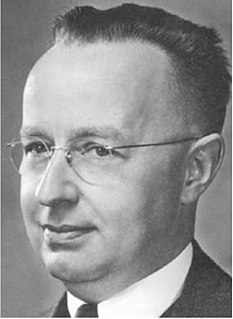A Quote by Suzy Kassem
Never trust the translation or interpretation of something without first trusting its interpreter. One word absent from a sentence can drastically change the true intended meaning of the entire sentence. For instance, if the word love is intentionally or accidentally replaced with hate in a sentence, its effect could trigger a war or false dogma.
Related Quotes
We cannot control the way people interpret our ideas or thoughts, but we can control the words and tones we choose to convey them. Peace is built on understanding, and wars are built on misunderstandings. Never underestimate the power of a single word, and never recklessly throw around words. One wrong word, or misinterpreted word, can change the meaning of an entire sentence - and even start a war. And one right word, or one kind word, can grant you the heavens and open doors.
The secret of good writing is to strip every sentence to its cleanest components. Every word that serves no function, every long word that could be a short word, every adverb that carries the same meaning that’s already in the verb, every passive construction that leaves the reader unsure of who is doing what—these are the thousand and one adulterants that weaken the strength of a sentence. And they usually occur in proportion to the education and rank.
To anyone who has followed the practice of using profanity or vulgarity and would like to correct the habit, could I offer this suggestion? First, make the commitment to erase such words from your vocabulary. Next, if you slip and say a swear word or a substitute word, mentally reconstruct the sentence without the vulgarity or substitute word and repeat the new sentence aloud. Eventually you will develop a non-vulgar speech habit.
Every sentence has a truth waiting at the end of it and the writer learns how to know it when he finally gets there. On one level this truth is the swing of the sentence, the beat and poise, but down deeper it's the integrity of the writer as he matches with the language. I've always seen myself in sentences. I begin to recognize myself, word by word, as I work through a sentence. The language of my books has shaped me as a man. There's a moral force in a sentence when it comes out right. It speaks the writer's will to live.
Writing is linear and sequential; Sentence B must follow Sentence A, and Sentence C must follow Sentence B, and eventually you get to Sentence Z. The hard part of writing isn't the writing; it's the thinking. You can solve most of your writing problems if you stop after every sentence and ask: What does the reader need to know next?
Most people write the same sentence over and over again. The same number of words-say, 8-10, or 10-12. The same sentence structure. Try to become stretchy-if you generally write 8 words, throw a 20 word sentence in there, and a few three-word shorties. If you're generally a 20 word writer, make sure you throw in some threes, fivers and sevens, just to keep the reader from going crosseyed.
Every sentence in order to have definite scientific meaning must be practically or at least theoretically verifiable as either true or false upon the basis of experimental measurements either practically or theoretically obtainable by carrying out a definite and previously specified operation in the future. The meaning of such a sentence is the method of its verification.
The first sentence of the truth is always the hardest. Each of us had a first sentence, and most of us found the strength to say it out loud to someone who deserved to hear it. What we hoped, and what we found, was that the second sentence of the truth is always easier than the first, and the third sentence is even easier than that. Suddenly you are speaking the truth in paragraphs, in pages. The fear, the nervousness, is still there, but it is joined by a new confidence. All along, you've used the first sentence as a lock. But now you find that it's the key.



































